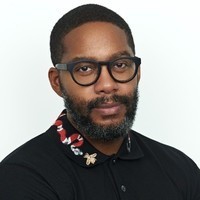Sam Fragoso is a writer, filmmaker, and the host of the podcast Talk Easy with Sam Fragoso.
“We have an hour together. We may not have another. We're here for a brief moment and then, you know, we die. And I want this thing to be as good as it can be. If if it's anything less than that, I'm just not interested. … And that, to me, is why you keep doing it: because that feeling when you really feel like you've put someone's life on the record in a way that is beautiful and painful and idiosyncratic and triumphant… when it goes well, it's like I lost 20 pounds. I am never a nicer or happier person than immediately after a taping. I'm kind of goofy and silly and delirious and grateful to be doing this. Like, so fucking grateful.”
























